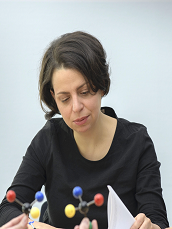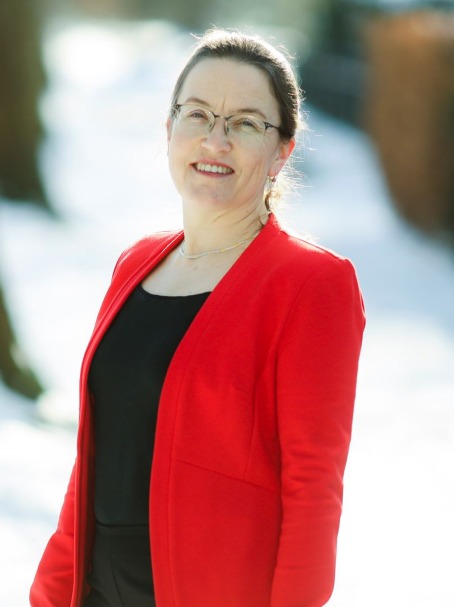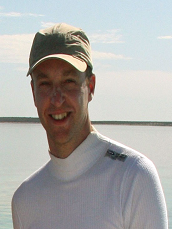Vici-beurzen voor vier wetenschappers RUG/UMCG
De Nederlandse Organisatie voor Wetenschappelijk Onderzoek (NWO) heeft Vici-subsidies van elk maximaal € 1,5 miljoen toegekend aan Nathalie Katsonis, Edwin Otten en Alexandra Zhernakova. Ook hoogleraar Kustecologie Tjisse van der Heide heeft een Vici-subsidie gekregen voor een onderzoek dat hij binnen NIOZ uit zal voeren. Met deze subsidie kunnen de onderzoekers vijf jaar lang een innovatieve onderzoekslijn ontwikkelen en een eigen onderzoeksgroep opzetten.
Vici is een van de grootste wetenschappelijke beurzen voor individuen in Nederland en richt zich op gevorderde onderzoekers. Het financieringsinstrument stelt onderzoekers in staat om onderzoek te doen naar eigen keuze. Dit geeft innovatief onderzoek een impuls en stimuleert talentontwikkeling bij wetenschappelijke onderzoeksinstellingen.

Nathalie Katsonis
Het onderzoek waarvoor prof. dr. Katsonis (Faculty of Science and Engineering, Stratingh Institute for Chemistry) een Vici-beurs heeft gekregen, gaat over het ontstaan van primitieve cellen in de eerste oceaan. De oorsprong van het leven op aarde geldt als een van de grote mysteries van de wetenschap. Onderzoekers hebben al lang geleden geconcludeerd dat de chemische reacties die het onstaan van leven mogelijk maakten, plaatsvonden in microscopisch kleine compartimenten, protocellen genaamd. Het is echter nog steeds niet bekend hoe deze protocellen werden gevormd. Met deze beurs gaan onderzoekers kijken of het mogelijk is dat protocellen zijn gemaakt van lipiden, gevormd door zonnestraling van een olielaag die de oceaan bedekte. De uitkomsten van dit onderzoek zullen ook van toepassing zijn op een hedendaagse kwestie: de beperking van milieuschade door de behandeling en verwijdering van vervuilende olievlekken.

Edwin Otten
Het beloonde project van prof. dr. Otten (Faculty of Science and Engineering, Stratingh Institute for Chemistry) onderzoekt hoe betere batterijen met organische materialen kunnen worden gemaakt. In dit project ontwikkelen de onderzoekers flow batterijen op basis van veel voorkomende elementen die als groen alternatief kunnen dienen voor de schaarse metalen die op dit moment toegepast worden. Met behulp van bipolaire organische moleculen worden symmetrische batterijen gemaakt, waarbij de + en – pool dezelfde samenstelling hebben. Hiermee kunnen een langere levensduur en lagere kosten worden bereikt, wat een belangrijke stap is in de richting van duurzame batterijen voor de opslag van zon- en windenergie.

Alexandra Zhernakova
Prof. dr. Zhernakova (UMCG) is beloond met een Vici-beurs voor haar onderzoek naar immuun-microbioom interacties bij allergische ziekten in kinderen. Allergische ziekten hebben meerdere oorzaken, waarvan de meeste onbekend zijn. Dit project zal in een grote groep moeders en baby's de complexe relatie bestuderen tussen de antilichamen van de moeder en het kind en hun darm- en mondflora, en hun relaties met dieet, genetica, omgevingsfactoren en allergische ziekten. Met behulp van geavanceerde kweektechnieken en orgaan-op-chip experimenten zullen onderzoekers specifieke immuun gerelateerde microben en metabolieten identificeren en hun impact op zowel het maagdarmkanaal als het immuunsysteem in kaart brengen. De bevindingen uit dit onderzoek zullen de ontwikkeling van microbiële therapie voor allergieën bevorderen.

Tjisse van der Heide
Ook prof. dr. ir. Van der Heide (Faculty of Science and Engineering, Groningen institute for Evolutionary Life Sciences), hoogleraar Kustecologie, kreeg een Vici toegewezen. Dit onderzoek, vanuit NIOZ, kijkt naar het herstellen van kustecosystemen door biobouwende soorten tijdelijk na te bootsen. Kustecosystemen gevormd door biobouwende soorten genereren essentiële ecosysteemdiensten, maar gaan wereldwijd achteruit. Ecosysteemherstel is lastig omdat de stabiliteit afhangt van hoe biobouwers zichzelf helpen met ‘emergente eigenschappen’. Deze eigenschappen ontstaan wanneer biobouwers samenklonteren. Hierdoor werkt de ‘zelfhulp’ pas als de clusters groot genoeg zijn. Met deze subsidie wordt een nieuwe conceptuele benadering getest die methoden uit de ecologie, industrieel ontwerp en techniek combineert om soort- en omgevingsspecifieke vestigingsstructuren te ontwerpen.
Meer nieuws
-
17 februari 2026
De lange zoektocht naar nieuwe fysica
-
10 februari 2026
Waarom slechts een klein aantal planeten geschikt is voor leven
